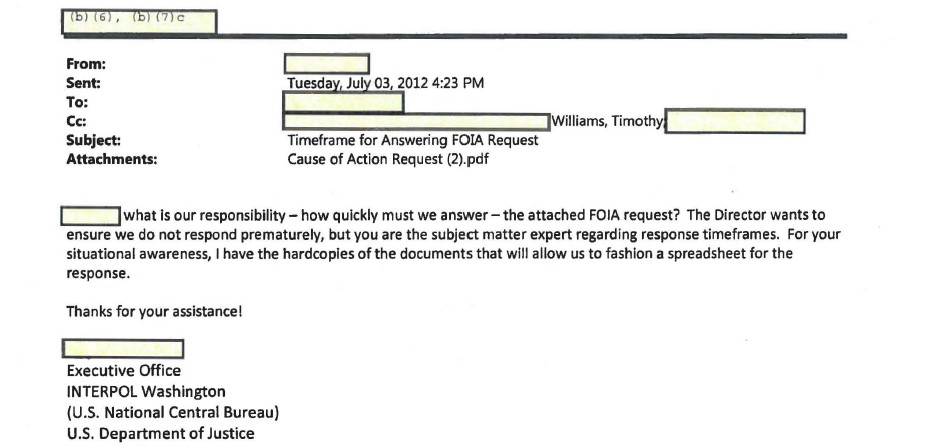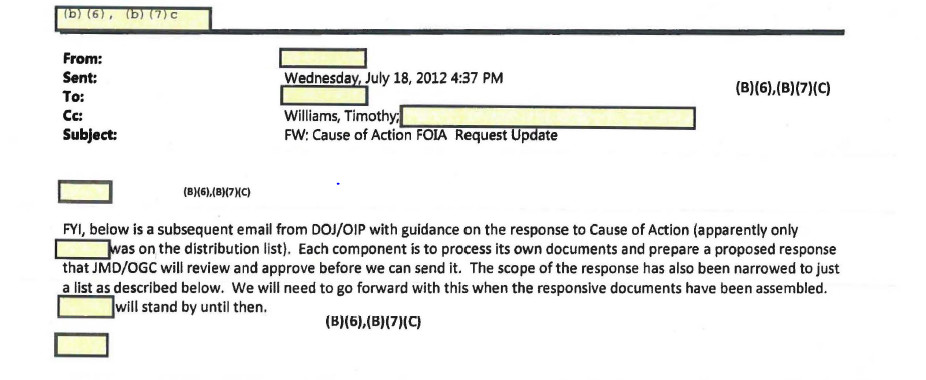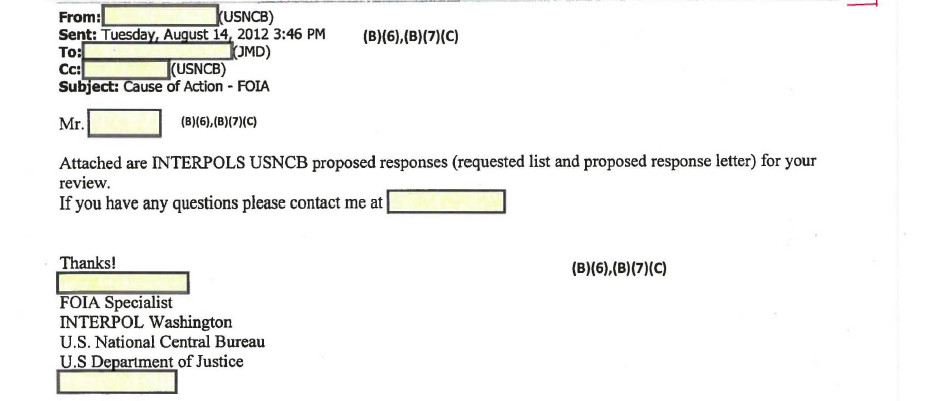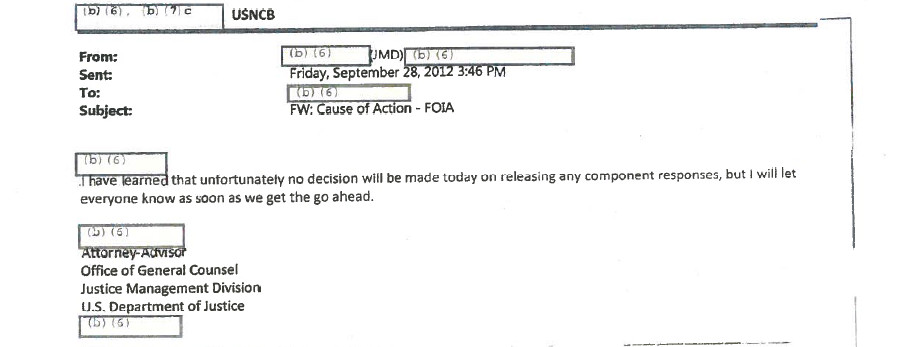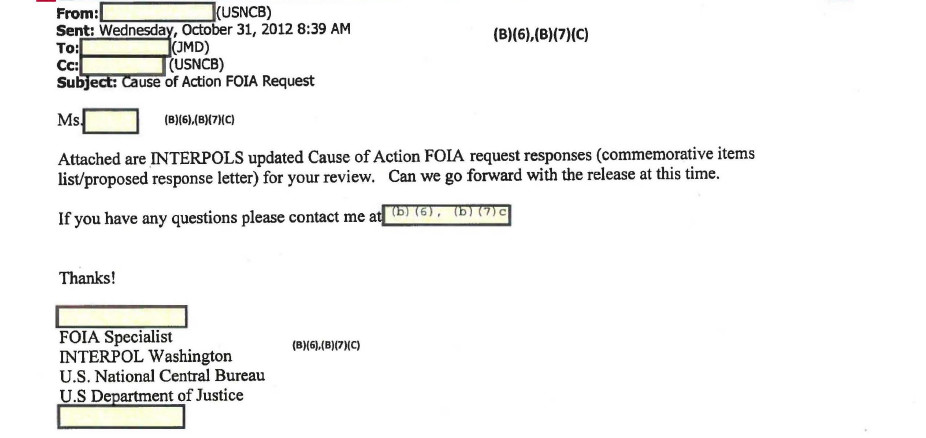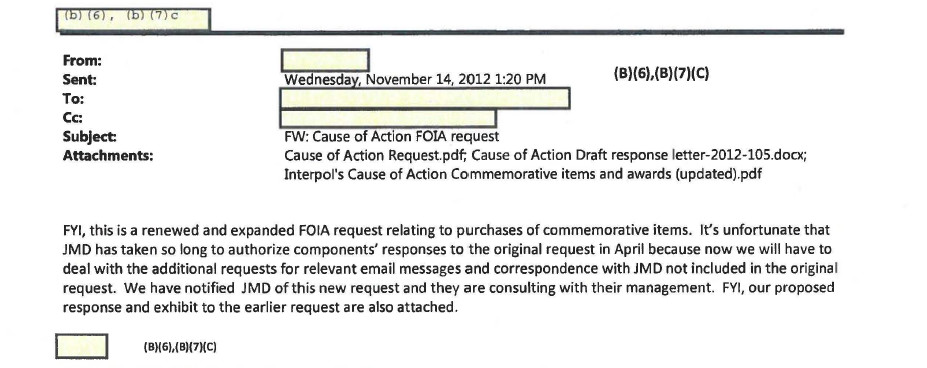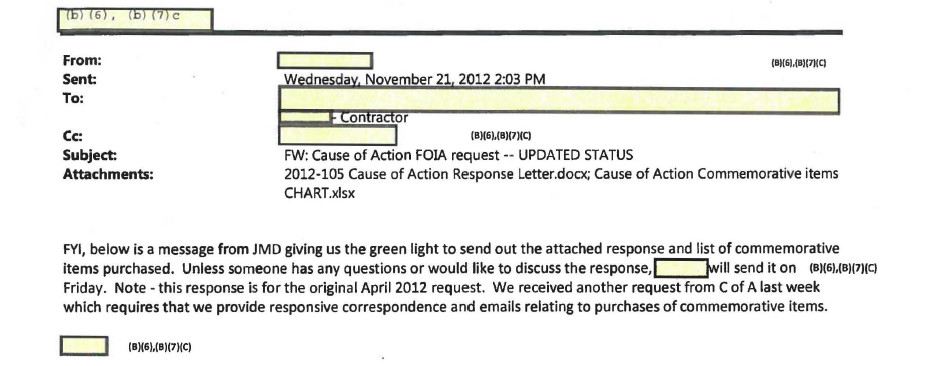When news of the General Service Administration’s (GSA) Las Vegas blowout broke in April 2012, Cause of Action was as appalled as anyone at the reckless waste of taxpayer dollars. But instead of focusing on mind readers and ritzy sushi receptions, we zeroed in on the unconscionable amount the GSA spent on baubles and trinkets commemorating the conference. Knowing that this kind of spending is all-too-common in the federal government, Cause of Action sent Freedom of Information Act (FOIA) requests to each government agency for all documents related to purchases of commemorative and promotional items over a three-year period.
While some agencies responded relatively quickly, others delayed production for weeks or even months. The Department of Justice (DOJ), in particular, took so long to produce documents that Cause of Action began to suspect the agency of deliberately dragging its feet. In November 2012 we sent another FOIA request to DOJ Interpol, this time asking for any communications regarding our original request sent seven months previously. When we finally received the documents, largely e-mail communications, in late January of this year, they revealed a department in the midst of a FOIA freak-out.
Check out this excerpt from notes taken during a DOJ Executive Officer’s meeting last May:
We’re flattered that DOJ bigwigs felt compelled to discuss Cause of Action’s request along with such important items as the Department’s budget and new management structure, but all that attention shouldn’t be necessary for a routine FOIA request. And what did they mean by commanding components to “stand down?” If they instructed employees already answering requests from FOX News and Bloomberg to stop their work and instead focus their efforts on Cause of Action’s request, that’s a major violation of the agency’s statutory obligations. FOIA regulations dictate that requests be addressed in the order they are received, not the order of their potential to embarrass the agency.
Then there’s this e-mail from DOJ Interpol’s Executive Office:
Call us old-fashioned, but Cause of Action believes agencies should follow the plain language of the law. And the plain language of the Freedom of Information Act states that agencies have 20 business days to respond to a request, even if only on an interim basis. That’s their “responsibility.” When a Director worries about “responding prematurely” after the Department has already sat on a request for three months, one has to wonder about that person’s motive. Is it to ensure that no stone is left unturned in the pursuit of relevant documents? Or is it to prevent damaging coverage of the department’s wasteful spending until the GSA conference scandal recedes from the public consciousness?
Perhaps the next few e-mails can shed some light on this question:
So, Justice Management Division (JMD) was tasked with reviewing all components’ responses before sending them on to Cause of Action. A little unorthodox, perhaps, but not unprecedented in our own experiences with federal FOIA procedures.
By August, DOJ Interpol had completed its document production:
After submitting it’s response to JMD, Interpol waited…and waited…
More than three months after submitting its production, Interpol finally received the long-awaited go-ahead:
In a stunning coincidence, JMD completed its review just one week after Interpol received our second FOIA request for communications regarding our original request. Funny how these things work out.
Although Cause of Action is still waiting on answers from a few more components, the documents we’ve received so far indicate that between January 2009 and June 2012, DOJ spent over $1 million on plaques, lapel pins, commemorative coins, and a whole slew of other trinkets for DOJ employees and contractors. The worst offender by far was JMD itself; in 2009 it spent $80,245 on awards alone for just one event, the Annual Attorney General’s Award Ceremony. In 2010 and 2011, as the rest of the Department scaled back costs in the face of a budget backlash, spending on swag for the Ceremony actually increased, to $160,137 and $172,845, respectively. When one DOJ component spends nearly half a million dollars on awards for three events in as many years, it’s clear that the GSA isn’t the only agency struggling with excessive and irresponsible spending practices.
Cause of Action believes that despite the attempts at transparency by some FOIA officers, Department of Justice leadership deliberately delayed our request rather than provide details on the embarrassing amount the agency spent on swag and trinkets. The high-level meetings, the fear of “responding prematurely,” the delays for a straightforward request; all this points to an agency hypersensitive to any and all reproach, obsessed with protecting its reputation at the expense of accountability and transparency. Rather than spending time and money shielding itself from criticism, perhaps DOJ should focus its resources on complying with FOIA law and serving the American taxpayer.

